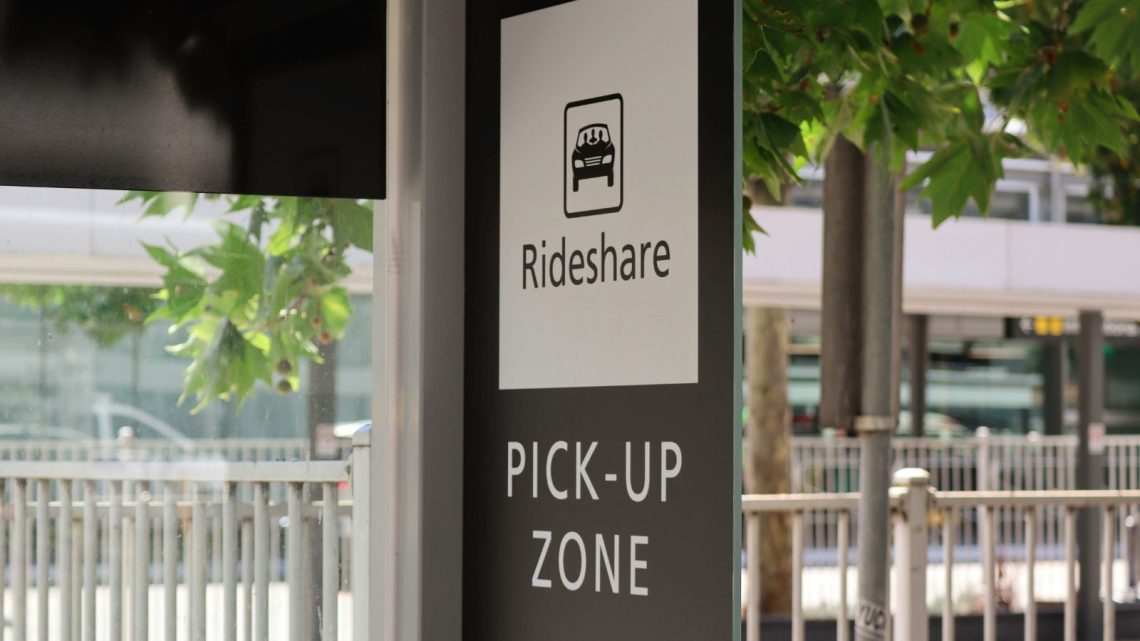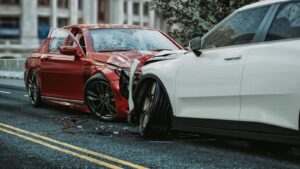The proliferation of ridesharing services and the advent of self-driving vehicles have introduced unprecedented complexities to motor vehicle accident liability in Nebraska. As Uber, Lyft, and other Transportation Network Companies (TNCs) continue to expand alongside the testing and limited deployment of autonomous vehicles, plaintiffs and defense counsel alike must navigate a web of overlapping insurance policies, evolving statutory frameworks, and novel questions of fault. This article examines who may be liable when rideshare drivers or self-driving vehicles are involved in collisions on Nebraska roads, with particular attention to relevant insurance requirements, statutory liability schemes, and comparative-fault rules.
Rideshare & Self-Driving Vehicle Accidents in Nebraska
Rideshare Driver Classification and Corporate Liability
Under Nebraska law, drivers for companies such as Uber and Lyft are classified as independent contractors, not employees, which significantly limits direct corporate liability for accidents. Courts have upheld that TNCs generally owe no direct duty of care beyond ensuring minimal driver vetting and app-based safety measures, insulating them from most negligence claims brought by injured third parties. Instead, liability typically attaches through insurance policies triggered by the driver’s status and app usage.
Rideshare Insurance Coverage Phases
Rideshare insurance policies provided by Uber and Lyft operate in three principal phases, contingent on the driver’s interaction with the app:
1. App Closed
When the driver is not logged into the rideshare app, only their personal auto insurance is in effect. Any accidents occurring in this phase fall entirely under the driver’s private policy.
2. App On, No Match
From the moment the driver logs into the app to when a passenger request is accepted, limited liability coverage (typically $50,000 per person/$100,000 per incident for bodily injury and $25,000 for property damage) is available as a secondary layer, kicking in only if the driver’s personal insurance is insufficient.
3. Passenger Onboard or Ride Accepted
Once a ride is accepted or a passenger is in the vehicle, TNC liability coverage increases dramatically, up to $1 million, providing primary protection for third-party bodily injury, property damage, and uninsured/underinsured motorist claims.
Other Potentially Liable Parties in Rideshare Accidents
Even within a rideshare context, traditional liability sources remain viable. If an unrelated driver causes the accident, that individual’s personal auto insurance typically becomes the first avenue for recovery. Plaintiffs may also pursue claims against vehicle parts suppliers or maintenance providers if a mechanical defect contributed to the crash. Moreover, under Nebraska’s joint-and-several liability provisions, a plaintiff may recover the full amount of economic damages from any one tortfeasor acting in concert with others, subject to apportionment rules for noneconomic damages.
Nebraska’s Minimum Insurance Requirements and Commercial Endorsements
Nebraska law mandates that all motorists maintain minimum liability coverage of $25,000 per person/$50,000 per incident for bodily injury and $25,000 for property damage. However, commercial driving endorsements, required by TNC drivers, are separate. If a collision occurs while transporting a passenger and a rideshare driver lacks a commercial endorsement, their insurer may deny the claim, shifting recovery to the TNC’s policy or to uninsured/underinsured motorist coverage. This potential coverage gap underscores the importance of verifying both personal and commercial insurance status immediately after an accident.
Nebraska’s Authorization of Self-Driving Vehicles
In 2018, the Nebraska Legislature enacted LB 989, permitting automated-driving-system-equipped vehicles to operate on public roads so long as they comply with all applicable traffic and motor-vehicle safety laws. The statute requires that an automated driving system be capable of performing the full dynamic driving task within its operational design domain and maintain compliance with the Nebraska Rules of the Road, subject to any exemptions granted by the Department of Motor Vehicles.
Insurance and Liability for Autonomous Vehicles
Nebraska does not currently prescribe distinct insurance requirements for self-driving vehicles beyond those for conventional cars. Consequently, vehicle owners must maintain the same minimum liability coverage. However, the shift of operational control from human driver to manufacturer raises unique liability considerations:
Manufacturer Liability: Design defects or software errors may expose manufacturers to product-liability claims under strict liability or negligence theories. If an autonomous system’s failure causes a crash, plaintiffs may allege defective design, inadequate testing, or failure to warn.
- Operator Liability: Even in partially autonomous vehicles, the human operator retains a duty to monitor the system. If an operator fails to intervene when alerted, courts may impute negligence to the human occupant alongside manufacturer responsibility.
- Third-Party Liability: Entities such as maintenance providers, mapping data suppliers, or even municipal road authorities could bear liability if poor upkeep or inaccurate data contribute to an autonomous system’s malfunction.
Available Damages in Nebraska Personal Injury Cases
In Nebraska, plaintiffs in personal injury actions may recover several categories of damages designed to compensate for losses resulting from another’s negligence or intentional misconduct. Accurately identifying, proving, and valuing each type of loss is critical for maximising recovery and for defendants to assess and manage exposure. The principal categories of recoverable damages are:
- Economic (Special) Damages
- Noneconomic (General) Damages
- Survival Action Damages
- Wrongful Death Damages
1. Economic (Special) Damages
Economic damages compensate for objectively verifiable monetary losses, and must be proven with reasonable certainty through documentation. They include:
- Medical Expenses
- Past Medical Costs: All reasonable and necessary charges for emergency care, hospitalization, surgeries, diagnostic testing (X-rays, MRIs), prescription medications, medical devices (e.g., braces, wheelchairs), physical therapy, and rehabilitation incurred from the date of injury through trial.
- Future Medical Costs: The present cash value of anticipated future medical needs, such as ongoing therapy, future surgeries, home nursing, prescription drugs, or long-term care. Expert testimony, often from life-care planners or treating physicians, is required to establish both scope and cost.
- Lost Wages and Diminished Earning Capacity
- Past Lost Income: Wages, salaries, bonuses, and fringe benefits (health insurance premiums, retirement contributions) lost from the date of injury through trial. Substantiation comes from pay stubs, employer records, and tax returns.
- Future Lost Earnings: Compensation for reduced ability to earn in the future, whether due to permanent impairment, decreased work hours, or forced occupational change. Calculation relies on vocational experts or economists who consider pre-injury career trajectory, earning history, education, age, and life expectancy.
- Property Damage
- Repair or replacement costs for personal property damaged in the incident, such as vehicle repairs or replacement of totaled automobiles and other personal effects.
- Out-of-Pocket Expenses
- Expenses reasonably incurred as a direct result of the injury, including transportation to medical appointments, travel, home modifications (wheelchair ramps, bathroom alterations), childcare, and hired assistance for household tasks.
Key Points on Economic Damages
- Nebraska applies a “reasonable value” standard: only those expenses that are reasonable, necessary, and causally related to the injury are recoverable.
- Future losses must be discounted to present value, with courts exercising discretion in selecting an appropriate discount rate.
- Detailed records and strong expert testimony strengthen claims and guard against challenges of speculation or inflation.
2. Noneconomic (General) Damages
Noneconomic damages compensate for subjective, non-monetary harms that do not lend themselves to precise calculation. While they do not require itemized receipts, evidence must show the severity and duration of the plaintiff’s suffering. Recoverable noneconomic damages include:
- Pain and Suffering
- Compensation for physical pain, discomfort, and mental anguish experienced from the moment of injury through recovery, and, in cases of permanent impairment, for the remainder of the plaintiff’s life.
- Emotional Distress
- Damages for anxiety, depression, sleep disturbance, humiliation, or fear directly caused by the incident and its aftermath.
- Loss of Enjoyment of Life (Hedonic Damages)
- The diminished capacity to enjoy hobbies, recreational activities, social events, travel, and other pursuits that the plaintiff formerly enjoyed.
- Loss of Consortium
- The injured spouse’s entitlement to recover for loss of companionship, affection, sexual relations, and household services. Under Nebraska law, this is generally asserted by the injured party rather than as a derivative claim by children or other relatives.
- Disfigurement and Permanent Disability
- Compensation for scarring, paralysis, loss of limb, or other irreversible impairments that alter the plaintiff’s appearance or functional abilities.
Statutory Caps and Limitations
- Nebraska imposes no statutory cap on noneconomic damages in personal injury cases. Instead, juries determine an appropriate award based on the evidence of pain, suffering, and life disruption.
- Defense counsel commonly argue for reductions based on the injury’s severity, duration of treatment, and any pre-existing conditions to mitigate potentially excessive awards.
3. Damages in Survival Actions
A survival action, pursued by the decedent’s personal representative, allows recovery of losses the decedent suffered between injury and death. These damages become part of the decedent’s estate and are distributed according to the will or Nebraska’s intestacy statutes. Recoverable items include:
- Medical Expenses and Pain and Suffering of the Decedent
- All reasonable medical costs incurred before death and compensation for the decedent’s pain, agony, and mental distress during the period between injury and demise.
- Lost Earnings of the Decedent
- Wages and benefits the decedent lost from the date of injury until death, offset by any value of household services the decedent continued to provide after the injury.
Procedural Note
- Survival actions must be filed within two years of the injury that caused death, under the general two-year statute of limitations for personal injury in Nebraska.
4. Wrongful Death Damages
Separate from the survival action, Nebraska’s wrongful death statute (Neb. Rev. Stat. § 30-809) permits certain beneficiaries to recover for losses arising from the decedent’s death. The personal representative files on behalf of the statutory beneficiaries, typically the surviving spouse and minor children. Damages include:
- Loss of Consortium and Companionship
- Compensation to the surviving spouse and minor children for the loss of guidance, comfort, society, and familial affection.
- Loss of Financial Support
- Present cash value of the decedent’s net earning capacity from the time of death until a prescribed age limit: generally, until minor children reach age 19, and similarly for support components attributable to the spouse.
- Funeral and Burial Expenses
- Reimbursement of reasonable costs for funeral, burial, or cremation services. These costs are in addition to, and do not reduce, the total award for consortium and support.
- Allocation Among Beneficiaries
- The statute directs that the spouse receives one-third of the total award and the children collectively receive two-thirds, with adjustments if no spouse or no children survive.
Statute of Limitations
- A wrongful death action must be commenced within two years of the decedent’s date of death (Neb. Rev. Stat. § 30-810).
Comparative – Fault Principles in Nebraska
When multiple parties share fault in a collision, such as a rideshare driver and a self-driving vehicle manufacturer—Nebraska applies a modified comparative-fault system. Under Neb. Rev. Stat. § 25-21,185.09, each party may be assigned a percentage of fault. A plaintiff whose own negligence equals or exceeds 50 percent of total fault is barred from recovery entirely. Otherwise, the plaintiff’s total damages are reduced by their percentage of fault. This 50 percent bar rule underscores the critical importance of minimizing contributory negligence in any tort action.
Allocation of Fault and Joint vs. Several Liability
In suits involving multiple defendants acting in concert, such as a TNC and a self-driving vehicle manufacturer whose software was integrated into a rideshare fleet—economic damages may be collected jointly and severally, allowing full recovery from any one defendant before contribution claims shift liability shares. Noneconomic damages, however, are several only, restricting recovery to each defendant’s proportional share. Plaintiffs should carefully assess the enterprise relationships among defendants to leverage joint-and-several provisions where possible.
Proving Liability: Practical Considerations
Accident reconstruction experts play a pivotal role in establishing fault in complex rideshare or autonomous-vehicle collisions. Key evidence includes:
- Electronic Logs: TNC trip data and “black-box” logs from autonomous systems record vehicle speed, braking, lane-control interventions, and system-status changes.
- Maintenance Records: Documentation of software updates, hardware repairs, and calibration of sensors may reveal lapses contributing to system failure.
- Witness Statements: Eyewitness accounts and dash-cam footage can corroborate software logs and indicate human-driver distraction or misjudgment.
- Regulatory Compliance: Demonstrating adherence (or lack thereof) to Nebraska’s DMV regulations on automated vehicles can establish whether a self-driving system was lawfully operating.
Timely preservation of digital evidence is crucial, as both TNCs and autonomous-vehicle manufacturers may contest its admissibility or relevance.
Recommendations for Practitioners and Claimants
- Immediate Policy Inquiry: Following an accident, secure written confirmation of which insurance policies were in force, from personal, commercial, TNC, to manufacturer umbrella coverage.
- Early Apportionment Analysis: Engage a qualified actuary or liability consultant to model comparative-fault scenarios early, identifying thresholds where a plaintiff’s recovery could be jeopardized under the 50 percent bar rule.
- Joint Claim Strategy: When viable, consolidate TNC and manufacturer defendants in a single action to exploit joint-and-several liability for economic damages.
- Regulatory Audit: Retain experts fluent in Nebraska’s autonomous-vehicle statutes to assess whether any statutory exemptions were granted improperly, potentially invalidating a system’s legality.
Understanding Rideshare and Self-Driving Vehicle Accidents in Nebraska
Rideshare and self-driving vehicle accidents in Nebraska pose multifaceted liability challenges, intertwining independent-contractor doctrines, layered insurance schemes, comparative-fault statutes, and nascent autonomous-vehicle regulations. Plaintiffs must navigate a patchwork of coverage phases and emerging product-liability theories, while defense counsel will leverage independent-contractor status and statutory compliance to limit exposure. Whether representing injured individuals or TNCs and manufacturers, a comprehensive understanding of Nebraska’s legal landscape and strategic use of joint-and-several liability and comparative-fault defenses is indispensable for achieving just outcomes in this evolving domain.
Horgan Law – Your Trusted Omaha Law Firm
If you’re looking for an Omaha law firm that combines the wisdom of experience with the energy and ambition of youth, look no further than Horgan Law, P.L.L.C. As experienced Lawyers in Omaha, NE, we apply our knowledge to every case to get you the best possible outcome. Our success is measured by yours-no matter what your situation is, we’ll be there to help you through it.
Contact us to schedule a consultation!







